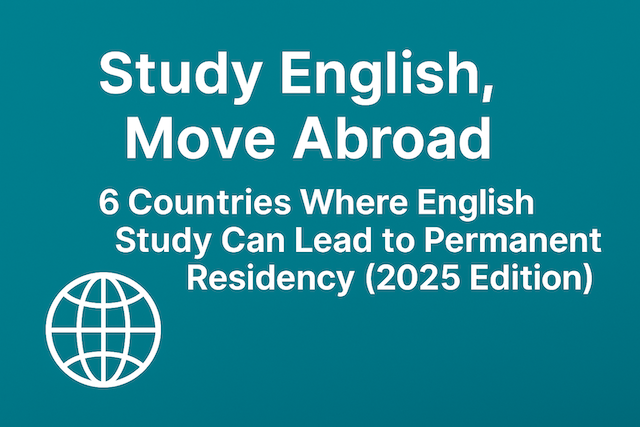Study English, Find Love: The Growing Trend of International Marriages in the Philippines
Contents
- 1 Study English, Find Love: The Growing Trend of International Marriages in the Philippines
- 2 ✍️ Introduction
- 3 🌴 Why the Philippines?
- 4 💘 Cebu as a Romantic Hotspot
- 5 💑 Cultural Compatibility: Filipino Women and Foreign Men
- 6 💍 Real Stories: From Student to Spouse
- 7 ⚠️ Challenges in Cross-Cultural Relationships
- 8 📊 Is This a Trend or a Coincidence?
- 9 🤔 Things to Consider Before Getting Serious
- 10 💞 Conclusion: Love Beyond Language
Study English, Find Love: The Growing Trend of International Marriages in the Philippines
✍️ Introduction
When most people decide to study English abroad, they imagine returning home with improved language skills, broader cultural understanding, and maybe a few unforgettable memories. But for some students, their journey in the Philippines leads to something far more life-changing: love.
Over the past decade, the Philippines—especially cities like Cebu—has become one of the world’s most popular destinations for affordable, immersive English education. With its tropical climate, friendly locals, and a unique mix of Asian and Western influences, it offers an environment that’s both welcoming and dynamic.
And as international students spend weeks or even months living, learning, and interacting closely with local teachers, dorm staff, and the wider community, deep personal connections naturally begin to form. Many of these relationships start casually—over shared meals, cultural exchanges, or language practice sessions—but some evolve into something much deeper.
From Japanese students marrying their English teachers, to Western digital nomads falling for local café owners, the stories are more common than you might expect. International marriages sparked by English study in the Philippines are no longer rare exceptions—they’re becoming a visible trend.
In this article, we explore the reasons behind this unique phenomenon, share real-life stories, and examine what makes the Philippines a place where both language and love can flourish.
🌴 Why the Philippines?
The Philippines has steadily earned its reputation as one of the best destinations in the world to study English. But beyond just academics, it’s the country’s people and culture that leave the deepest impression—and sometimes, capture hearts.
✅ 1. Affordable, High-Quality English Education
Compared to traditional destinations like the U.S., UK, or Australia, studying English in the Philippines is significantly more affordable. Many language schools offer intensive one-on-one classes at a fraction of the cost, often including meals and accommodation. This setup allows students to stay longer, immerse deeper, and build real connections.
✅ 2. Friendly and Approachable Locals
Filipinos are known for their warm hospitality and open, welcoming nature. It’s common for students to be invited to family gatherings, join weekend trips, or bond over karaoke nights. These interactions go far beyond the classroom, often leading to genuine friendships—and in some cases, romantic interest.
Because English is an official language in the Philippines, communication barriers are minimal. Locals speak English fluently, allowing students to navigate daily life with ease and build relationships without relying on translation apps or interpreters. This shared language often becomes the starting point for deeper emotional connections.
✅ 4. A Relaxed and Social Lifestyle
The pace of life in the Philippines—especially in places like Cebu—is more relaxed and community-oriented. People take time to talk, share meals, and enjoy life together. For international students used to more individualistic or fast-paced cultures, this environment can feel like a refreshing reset—and an ideal backdrop for romance to blossom naturally.
💘 Cebu as a Romantic Hotspot
Cebu isn’t just a top destination for English education—it’s also one of the most romantic cities in Southeast Asia. Its unique blend of island charm, urban energy, and deeply social culture creates the perfect environment for unexpected love stories.
🏝️ A Perfect Mix of Study and Leisure
Unlike crowded metropolises, Cebu offers a balanced lifestyle. During weekdays, students are immersed in focused English study, often through one-on-one lessons. But on weekends and evenings, they can explore white-sand beaches, visit cozy cafés, or enjoy live music in local bars.
This rhythm of study and leisure naturally encourages social interaction—not only among students, but also with locals who work at schools, restaurants, shops, and tour agencies. It’s a setting where relationships can grow at a relaxed pace, without the pressure of a formal dating scene.
☕ Where People Actually Talk to Strangers
In many parts of the world, strangers rarely strike up conversations—but not in Cebu. Whether it’s your barista at a local café, your dormitory manager, or your tour guide on a weekend trip, people are friendly and open to interaction.
For foreign students, this creates countless small windows of connection: a laugh shared over breakfast, a chat during laundry pickup, or a spontaneous invitation to a birthday party. These small moments often become the seeds of deeper connections.
🏫 Language Schools That Feel Like Communities
Most language schools in Cebu are more than just academic institutions—they’re tight-knit communities. Students eat, study, and often live on the same campus, surrounded by Filipino teachers and staff. It’s not unusual for students and teachers to celebrate birthdays together, share cultural traditions, or support each other through homesickness.
Over time, this sense of closeness creates a space where relationships—romantic or otherwise—can naturally develop without feeling forced or artificial.
💑 Cultural Compatibility: Filipino Women and Foreign Men
One of the key reasons so many international students end up forming lasting relationships with Filipino women is the surprising level of cultural compatibility. While every relationship is unique, certain shared values and dynamics help bridge the gap between different upbringings and traditions.
💕 1. Strong Family Values
Family is at the heart of Filipino culture. Respect for parents, loyalty to siblings, and close-knit extended families are the norm. For many foreign men—especially from cultures where traditional family structures are declining—this can be deeply appealing.
Shared meals, regular family visits, and strong moral support systems are not just expectations—they’re part of daily life. For students looking for a life partner who shares these values, Filipino women often resonate deeply.
🙋♀️ 2. Warmth, Positivity, and Hospitality
Filipino women are often described as cheerful, supportive, and approachable. Their ability to make others feel welcome and valued—whether as a friend, a student, or a romantic partner—is something many foreigners find irresistible.
Many foreign men also appreciate the cultural emphasis on modesty, politeness, and emotional intelligence. These qualities contribute to smooth and respectful communication, even across language or cultural gaps.
Because most Filipino women speak English fluently, there’s rarely a major language barrier. This gives relationships a head start, allowing couples to communicate openly from the very beginning. Even when vocabulary or expressions differ slightly, the ability to express emotions, values, and life goals in a common language is a huge advantage.
🧭 4. Openness to Cultural Differences
Another unique strength is the adaptability of many Filipinos. Due to the country’s long exposure to both Eastern and Western cultures, Filipino women are generally open-minded and curious about other lifestyles and traditions. Many are willing to learn about their partner’s background and make efforts to build a shared future—whether in the Philippines or abroad.
💍 Real Stories: From Student to Spouse
Behind every statistic is a personal story—and in Cebu, these stories are surprisingly common. While every relationship is unique, the path from student to spouse often follows a similar arc: curiosity, connection, and commitment. Here are just a few real-life examples that illustrate how language study turned into love and lifelong partnership.
📖 Case Study 1: Hiroshi from Japan & Grace, an ESL Teacher
Hiroshi, a 33-year-old salaryman from Tokyo, came to Cebu for a 12-week ESL program after quitting his job. He wanted to reset his life, and improve his English before considering a career change.
At his language school, he was assigned to Grace, a warm and witty teacher who taught him Business English. What started as professional conversations about emails and presentations slowly turned into deeper discussions about life, family, and dreams.
After classes, they started having coffee together at a nearby café. By the time Hiroshi’s program ended, the two were inseparable. He extended his stay twice, and a year later, they got married and now live in Fukuoka, Japan—where Grace teaches online English classes and Hiroshi works in international logistics.
📖 Case Study 2: Marcus from Sweden & Alyssa, a Dormitory Manager
Marcus, a digital nomad from Stockholm, signed up for an 8-week ESL course to work on his accent and grammar. He wasn’t particularly focused on social life, preferring to spend evenings working remotely from his dorm.
But he soon noticed Alyssa, the dormitory manager, who went out of her way to help students settle in and feel at home. Her kindness and confidence impressed him, and he began looking forward to their small chats during meal times and laundry pickups.
After a few group outings and shared laughs, they started dating. Today, Marcus and Alyssa are married and split their time between Cebu and Europe, running an online travel business together.
📖 Case Study 3: Brian from the U.S. & Camille, a Café Owner
Brian had been traveling through Southeast Asia for over a year before deciding to polish his English in Cebu. Though his classes helped, he credits his real language progress to conversations with Camille, a local café owner he met on his second week in the city.
Drawn by her passion for coffee and her fluent English, he became a regular at her shop. What started as customer-and-owner banter became a genuine connection.
Three years later, they’re married and living in Cebu. Camille has expanded her café into a popular co-working space for international students, and Brian helps with marketing and event planning.
⚠️ Challenges in Cross-Cultural Relationships
While many love stories between international students and Filipino partners are inspiring, they’re not without challenges. Cultural differences, long-term planning, and legal complexities can all create friction if not properly addressed. Understanding these potential hurdles is key to building a relationship that lasts.
🗣️ 1. Language Nuances and Miscommunication
Even though English is widely spoken in the Philippines, emotional expression, humor, and indirect communication styles can vary greatly. What feels like honesty in one culture may seem rude in another. Misunderstandings can occur when words are taken too literally—or when body language doesn’t match intentions.
Couples often need time (and patience) to learn each other’s unspoken rules of communication.
👪 2. Family Expectations and Involvement
Filipino culture is deeply family-oriented. While this can be comforting, it also means that extended family often plays an active role in a couple’s life—even in decisions about living arrangements, finances, or child-rearing.
For foreigners who come from more individualistic cultures, this close involvement can feel overwhelming. Open dialogue and mutual respect for each other’s backgrounds are essential to navigating this dynamic.
💸 3. Financial and Lifestyle Differences
Income levels, spending habits, and expectations about who should pay for what can vary widely. For example, foreign partners may be perceived as more financially stable, which can create pressure—or unrealistic assumptions.
It’s important to have clear, honest conversations early about money, careers, and future goals to avoid resentment or imbalance later on.
🌏 4. Immigration and Visa Issues
Once a relationship becomes serious, logistics come into play. Questions like “Where will we live?” or “What visa should we apply for?” can become complex quickly.
Long-distance periods, visa rejections, or difficulties in obtaining spousal residency can test even the strongest relationships. Couples often need to consult legal experts and plan months—sometimes years—in advance to build a life together in one country.
💔 5. Social Stigma and Stereotypes
Unfortunately, cross-cultural couples—especially those with significant age or economic differences—may face judgment or assumptions, both in the Philippines and abroad.
Some people may question the motives of one partner, or cast doubt on the relationship’s authenticity. Overcoming these biases requires emotional maturity and a strong support system, both within the couple and in their communities.
📊 Is This a Trend or a Coincidence?
At first glance, stories of foreign students marrying locals in the Philippines might seem like isolated, romantic anecdotes. But dig a little deeper, and a clear pattern begins to emerge—one shaped by shifting global dynamics, lifestyle choices, and evolving cultural openness.
📈 Increasing Numbers, Real Evidence
While exact statistics on student-local marriages in the Philippines are limited, there are telling indicators:
-
Many English language schools report a noticeable number of alumni who later return—not just to study again, but to visit a partner.
-
Marriage license applications between foreigners and Filipinos, especially in provinces like Cebu and Bohol, have steadily increased over the last decade.
-
Embassy records (such as Japan, South Korea, and Germany) show a gradual rise in international marriage registrations involving Filipino spouses.
What once seemed rare is now routine.
🌐 Global Mobility and Digital Connectivity
More people today are living transnational lives—working remotely, traveling longer, and staying in places like the Philippines for months or even years. With dating apps, social media, and open cultural attitudes, meeting and connecting with locals has never been easier.
For many, study abroad is no longer just academic—it’s a life experiment. And sometimes, love is part of the outcome.
👥 Word-of-Mouth and Peer Influence
Students often hear about these love stories from alumni or online forums before even arriving in the Philippines. The idea of possibly “finding love while learning English” adds a layer of emotional curiosity to the academic journey.
Some students may arrive with no such expectations, but quickly discover that real human connections are a natural part of life in a friendly, social culture like Cebu’s.
💍 Local Acceptance and Cultural Integration
In many Filipino communities, international marriages are widely accepted—especially if the relationship is respectful and genuine. Filipinos are generally open to foreigners and interested in learning about other cultures, making integration smoother compared to other regions.
Couples often find support not only from their immediate circles but also from wider community networks, including schools, churches, and expat groups.
🤔 Things to Consider Before Getting Serious
Falling in love abroad can be magical—but making it work long-term requires more than romance. If you’re considering building a future with someone you met during your study abroad experience, here are a few things to keep in mind before taking the next big step.
💬 1. Talk About the Future Early
It’s easy to stay in the “vacation mode” mindset while studying abroad, but if your relationship is serious, you’ll need to have real conversations about:
-
Where you’ll live long-term
-
Career goals and financial plans
-
Family expectations (especially around children or elder care)
-
Long-distance scenarios, if applicable
The earlier you align your visions for the future, the better chance you have of navigating challenges smoothly.
👣 2. Move Slowly, Even If It Feels Fast
It’s common for relationships abroad to progress quickly due to the intense, immersive environment. While some couples successfully marry within months, others realize too late that they rushed into things.
Take time to meet each other’s families, spend time outside the “study abroad bubble,” and face real-world situations together before making life-changing decisions.
🛂 3. Understand the Legal and Visa Process
Marriage to a foreign national involves paperwork, legal hurdles, and sometimes immigration interviews. Do your homework:
-
Research marriage requirements in the Philippines (or your home country)
-
Understand visa categories for spouses or fiancés
-
Be honest about any past marital history or legal records
Consider consulting an immigration lawyer if you’re planning to move countries together.
💡 4. Respect, Not Rescue
Healthy cross-cultural relationships are built on mutual respect, not savior dynamics. Avoid entering a relationship with the mindset of “helping” or “rescuing” someone from their circumstances.
Instead, focus on shared values, emotional compatibility, and life goals. Remember: strong partnerships are equal partnerships.
👂 5. Be Ready for Opinions—But Stay True to Yours
Friends, family, and even strangers might offer their opinions (solicited or not) about your relationship. Some may be skeptical, others supportive, and a few may carry biases.
Listen with openness, but ultimately, trust your own judgment. No one else fully understands your connection except the two of you.
💞 Conclusion: Love Beyond Language
Studying English in the Philippines may begin as an academic pursuit, but for many, it becomes a journey of personal transformation—emotionally, culturally, and even romantically.
Cebu, in particular, offers more than just great teachers and affordable tuition. It provides a warm, social, and open environment where people from different parts of the world can meet, connect, and build meaningful relationships. In that space, it’s no surprise that love often finds a way.
While international relationships require effort, patience, and cross-cultural understanding, they also offer something incredibly rare: a chance to build a life that blends the best of two worlds. For those open to new experiences, studying English abroad may just be the first step toward something far more lasting than fluency—a shared future.
Because sometimes, learning a new language is just the beginning.
Love, too, speaks fluently—if you’re willing to listen.







